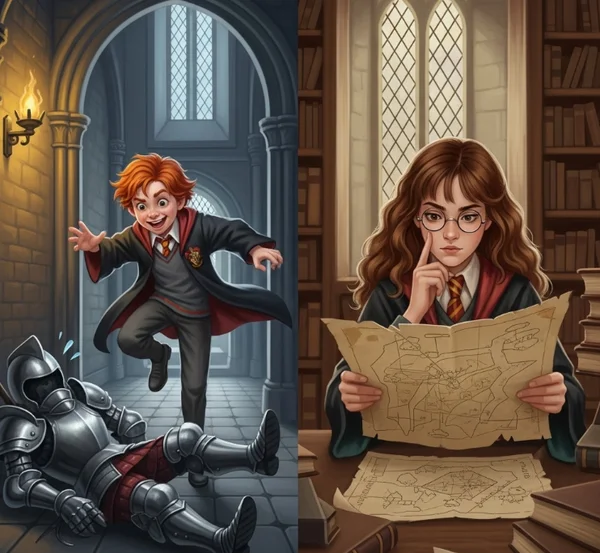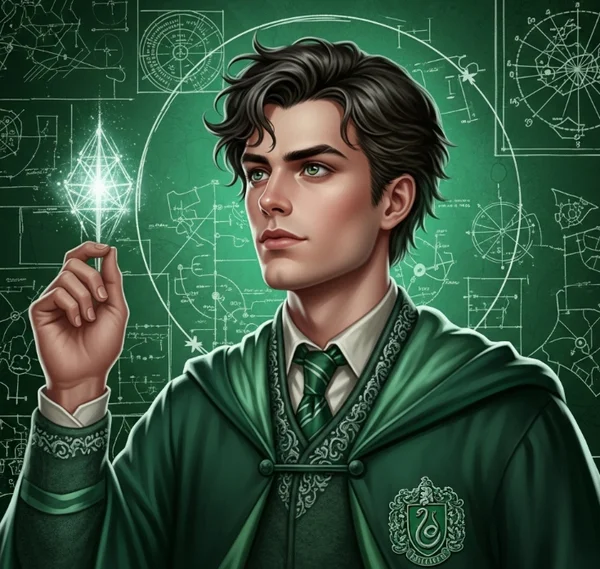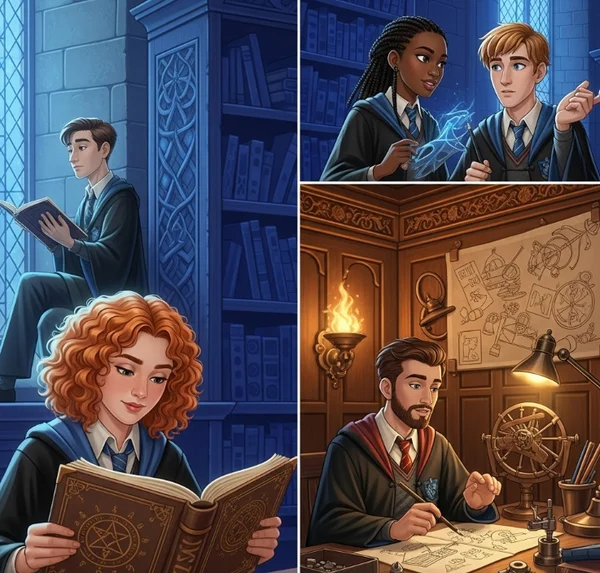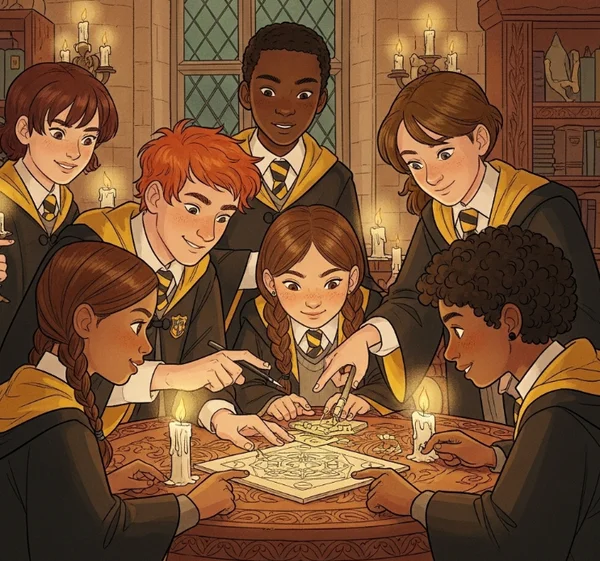The Truth About Gryffindor, Slytherin, Ravenclaw & Hufflepuff
June 22, 2025 | By Gideon Finch
The four esteemed Hogwarts houses – Gryffindor, Slytherin, Ravenclaw, and Hufflepuff – are cornerstones of the Harry Potter universe. Yet, over time, certain Hogwarts house stereotypes have taken root, often painting these complex communities with overly simplistic, and sometimes unfair, brushstrokes. Are all Slytherins evil? Are Hufflepuffs boring? It's time to look beyond the surface, delve into fact vs fiction, and achieve a deeper understanding of Hogwarts houses. If you've ever wondered about these common misconceptions about Hogwarts houses or how a harry potter house quiz can help you see beyond them, read on!
Gryffindor Misconceptions: Are They All Just Reckless Heroes?
Gryffindor, the house of the brave, often gets typecast. But are these Gryffindor misconceptions truly accurate?

The Fine Line Between Bravery and Recklessness: More Than Just Charging In
Are Gryffindors reckless? While their courage is undeniable, true Gryffindor bravery isn't about mindless risk-taking. It's about standing up for what's right, even when afraid. Many Gryffindors, like Hermione Granger, exhibit considerable thought and strategy alongside their courage.
Gryffindor Intelligence and Strategic Thinking: Not Just Brawn
The stereotype often overlooks the intelligence and strategic capabilities within Gryffindor. Think of Albus Dumbledore, a towering intellect, or Minerva McGonagall, a brilliant tactician. Their house traits include more than just daring.
Not Every Gryffindor Seeks the Spotlight: Quiet Courage Exists
While some Gryffindors are natural leaders who thrive in the limelight, many others possess a quieter form of courage, doing what's necessary without seeking applause. Their house pride is rooted in action, not just attention.
Slytherin Myths: More Than Just Ambition and Dark Magic?
Slytherin often bears the heaviest burden of negative Hogwarts house stereotypes. Let's address these Slytherin myths.

Are All Slytherins Destined for Evil? Debunking the Ultimate Myth
This is perhaps the most pervasive and damaging stereotype. Are all Slytherins evil? Absolutely not. While the house produced dark wizards, it also produced individuals of great complexity and even heroism, like Severus Snape. The Sorting Hat sees potential, not a fixed destiny.
The Positive Sides of Ambition and Cunning: Driving Forces for Success
Ambition and cunning, core Slytherin house traits, are not inherently negative. Ambition can fuel incredible achievements, and cunning can be a powerful tool for strategic thinking and problem-solving. It's the application of these traits that matters.
Slytherin Loyalty and Protective Instincts: Often Overlooked
Slytherins can be fiercely loyal to their own and possess strong protective instincts, particularly for those they consider part of their inner circle. This loyalty, though perhaps more selective, is a powerful force. Thinking a harry potter house quiz might place you here? Don't let stereotypes deter you.
Ravenclaw Stereotypes: Beyond Bookworms and Quizzical Looks?
Ravenclaw, the house of the wise, also faces its share of Ravenclaw stereotypes.

Is Intelligence the Only Valued Ravenclaw Trait? The Importance of Wit and Creativity
Are Ravenclaws just bookworms? While intelligence and learning are highly valued, Ravenclaw also cherishes wit, creativity, originality, and individuality. Luna Lovegood is a prime example of this broader definition of Ravenclaw excellence.
Creativity, Individuality, and Wit in Ravenclaw: More Than Memorization
Ravenclaws are often innovators, thinkers, and artists. Their pursuit of knowledge is frequently driven by a desire to create and understand, not just to accumulate facts. Their house traits celebrate unique minds.
Ravenclaws in Action: Not Just Confined to the Library
While they love a good library, Ravenclaws apply their intellect in many fields. From wandlore (Ollivander) to charms (Flitwick), their contributions extend far beyond academic study.
Hufflepuff Misconceptions: Far From "Boring" or "The Rest"?
Hufflepuff often faces Hufflepuff misconceptions that downplay its true strengths.

The Strength in Loyalty, Hard Work, and Fairness: Foundational Virtues
Are Hufflepuffs boring? Their core values of loyalty, hard work, patience, and fairness are the bedrock of any strong and just society. These are not passive traits but active strengths that require immense character.
Why Hufflepuff is Not the "Default" or "Leftover" House: A House of Choice
The idea that Hufflepuff takes those who don't fit elsewhere is a disservice to Helga Hufflepuff's inclusive vision and the specific, positive house traits she valued. Many choose Hufflepuff for its strong sense of community and integrity.
Courage and Determination in Hufflepuff: Quiet Strength
Hufflepuffs possess their own brand of courage and determination. Think of Cedric Diggory or Nymphadora Tonks. Their bravery might be less ostentatious, but it is no less real or impactful. An understanding of Hogwarts houses reveals this depth.
Why Do Hogwarts House Stereotypes Persist?
These Hogwarts house stereotypes often persist due to several factors:
The Influence of Key Characters and Dominant Narratives
The prominence of certain heroic Gryffindors and villainous Slytherins in the main Harry Potter narrative can overshadow the diversity within each house.
Fandom Interpretations and Simplifications Over Time
As with any beloved story, fandom interpretations can sometimes simplify complex characters and house dynamics, leading to the reinforcement of stereotypes.
See the True Colors: Understanding the Nuance in Every Hogwarts House
Ultimately, no Hogwarts house is a monolith. Each is a tapestry woven with diverse individuals who express their house's core house traits in unique ways. The Sorting Hat sees potential and values, but it is our choices that truly define us. By debunking myths and looking beyond Hogwarts house stereotypes, we gain a richer, more accurate understanding of Hogwarts houses and the magical world they inhabit.
What common misconceptions about Hogwarts houses have you encountered? Do you agree with our analysis? Share your thoughts in the comments! And if you're ready to explore your own connection to these nuanced communities, take the official Hogwarts House Quiz and see where your true colors lie!
Clearing Up Common Hogwarts House Confusions
Is it true that all Slytherins are bad?
No, this is one of the most significant Slytherin myths. While Slytherin has produced dark wizards, it has also produced complex individuals and those who fought for good. Ambition and cunning are not inherently evil.
Are Hufflepuffs really the least brave house?
This is a common Hufflepuff misconception. Hufflepuffs demonstrate courage through loyalty, standing up for fairness, and quiet determination. Their bravery may be different from Gryffindor's, but it is equally valid.
Do Ravenclaws only care about books and studying?
No, this is a limiting Ravenclaw stereotype. While they value intelligence and learning, Ravenclaws also cherish creativity, wit, and individuality, as seen in characters like Luna Lovegood.
Are Gryffindors always arrogant or reckless?
This is a Gryffindor misconception. While some Gryffindors can be impulsive, true Gryffindor bravery is about courage with conviction, not necessarily arrogance or recklessness. Many are also highly intelligent and strategic.
How can a harry potter house quiz help understand beyond stereotypes?
A good harry potter house quiz focuses on a wide range of your personality traits, values, and preferences, rather than just superficial characteristics. By answering honestly, you can gain insight into which house's core values resonate most deeply with you, helping you see beyond common Hogwarts house stereotypes.